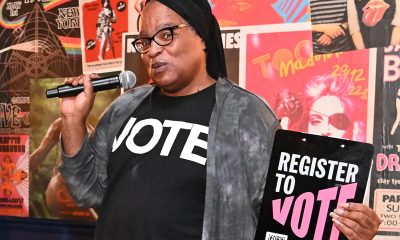Obituary
Remembering Rauhofer
Gay music legend noted for remixes, production and innovation
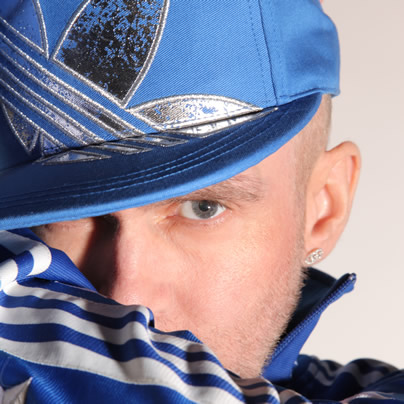
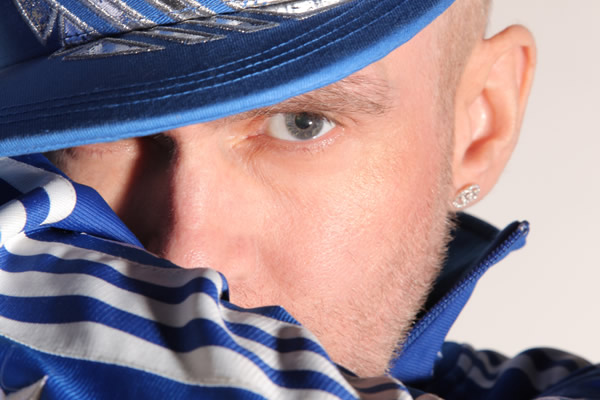
Peter Rauhofer died last week in New York. Gay music lovers say he’ll be remembered for his unyielding work ethic and boundless creativity. (Photos courtesy Angelo Russo)
Angelo Russo knew something was wrong in March when several days went by without hearing back from his friend and client, legendary producer/DJ/remixer Peter Rauhofer.
“We sometimes talked five or six times a day so when I didn’t hear back from him, yeah, it sent up the red flags,” Russo says. “The only time I didn’t hear from him was if we were fighting and of course we fought. The closer you are, the more you fight with someone. But yeah, back in March, we were fine. I was speaking to him one day, then a couple days went by and eventually we had 911 break into his apartment.”
Russo says Rauhofer, whom he’d met at a music conference in 2000 and had managed since 2006, was “barely conscious” having suffered a seizure. Hospitalized at St. Luke’s-Roosevelt Hospital Center in New York, the prognosis was grim. Rauhofer, who was gay, had a malignant brain tumor that had gone undiagnosed long enough to have grown significantly. Russo (also gay) says doctors said its position on the brain made it inoperable. They tried a round of chemotherapy that was unsuccessful. On April 29, Rauhofer turned 48 in the hospital. He died May 7.
Russo says it may have been a bit of a blessing in disguise. Had the Grammy-winning music legend, who remixed hits for Cher (“Believe”), Madonna (“Nothing Fails,” “4 Minutes” et. al.), Janet Jackson (“Throb”), Britney Spears (“Toxic”) and scores of other artists, responded well to chemo, it may have left him with diminished mental faculties.
http://www.youtube.com/watch?v=2V4paTlgYLM
“There was a possibility at one point that if it had worked, he may only have had the mental capacity of a 5 year old,” Russo says. “He would have been so unhappy but how can you tell his mom not to try. So they tried but it didn’t work. … When they came back and said there was nothing more they could do, I was hoping he wouldn’t have to lay there and suffer too long. He was not about suffering. He was about being able to be happy and bring joy to people. That’s what his career was all about — parties and music. If he wasn’t able to do that, then I’m happy it didn’t go another route.”
Rauhofer’s mother Helga, who visited from their native Austria for her son’s final days, is executrix of his estate. He will be interred in Austria. A candlelight vigil was held last weekend in Miami. A public memorial is planned for New York Pride next month. Friends in New York are also planning a private memorial service there, where he’d lived since about 1996. Check Rauhofer’s Facebook page for details on public events.
The gay club/music world responded with shock and sadness at Rauhofer’s untimely death.
“I don’t use this term loosely, but he was a musical genius,” says gay DJ/remixer Joe Gauthreaux. “He never got stuck in one sound and stayed there, that’s why his mixes always resonated. He was always doing something different and trying to grow. He never did the same remix twice. He was always trying different sounds. There really was nobody like him.”
Gauthreax also says he “was a huge Peter fan, huge.”
“He was one of the remixers that, from a DJ standpoint, I would always be so excited about. It was usually his mix that was quote-unquote the one. So from that standpoint, this is very hard to take just knowing that there’s not going to ever be another Peter Rauhofer mix to come in and save the day.”
Tori Amos, who had a No. 1 Billboard dance hit in February with Rauhofer’s remix of her song “Flavor,” said in a statement that “he truly captured the spirit of the song” and that she’ll “always hold a very special place in my heart for Peter.”
Local gay nightclub impresario Ed Bailey, who hosted Rauhofer twice at Velvet Nation in the early ‘00s, says Rauhofer’s work epitomized the era.
“His music, his production and his remixes, were kind of not exclusively but almost like the overwhelming soundtrack of the big clubs and circuit parties for the whole decade from about 2000 to 2010,” Bailey says. “He’s widely revered as that amazing one of all the amazing people who helped shape an entire kind of era in club land that for most people, they feel it was one of the best eras ever. We were very proud to be able to have him at Nation and I remember just being mesmerized by his set.”
Gay DJ Hector Fonseca met Rauhofer in 1998, joined Star 69 in 2001 and worked with Rauhofer for eight years releasing about 20 remixes and three albums. Fonseca, traveling this week in Europe, says by e-mail he and Rauhofer developed a strong working relationship and friendship.
“Besides his strong work ethic and extreme attention to detail, what made him stand out was that he was always pushing the sound in the gay scene with elements from the European trance and electro scene,” Fonseca says. “Very few, if any, were doing that and still to this day, it’s quite unique.”
Fonseca says Rauhofer will be “remembered as a visionary from a great era in New York City.”
“We were really the epicenter of house,” he says. “Now most cutting edge stuff is coming from Amsterdam, but if you take a closer look into that music, you can hear the influence from DJs of that time here in New York and Peter was a big part of that. The Twilo and Roxy days when you really had to push the sound to stand out. He will be missed by many but remembered through his music.”
During a lengthy phone interview this week, Russo, who started as an intern at Rauhofer’s Star 69 label in 2001, shares several memories of their years working together.
Russo says Rauhofer:
- had been in apparently good health prior to the March seizure. He says he doesn’t know of Rauhofer ignoring any warning signs earlier though he admits Rauhofer was usually “not one to go to the doctor.” “He hadn’t complained of headaches or anything,” Russo says. “This kind of blindsided me.”
- was in and out of consciousness in his final days. He was able to squeeze hands of those by his bedside at times. “We don’t know how much he heard, but we gave him an earful.” And although sad, Russo says it was a joy to share with Rauhofer’s mother details of his life in New York, of which she’d previously known little.
- was a workaholic who “would obsess over his mixes” and would often stay up working all night to finish them.
- loved to collect toy metal robots and Gucci jewelry.
- kept his Grammy for Cher’s “Believe” in his Star 69 office until it closed in the summer of 2010 after which he kept it on a shelf in the living room of his 42nd Street apartment in Manhattan.
- dated at various times and had some semi-long term boyfriends, but made it clear work came first for him. “A lot of people just don’t have the patience for that,” Russo says. Rauhofer had not been dating in recent months, Russo says.
- Had met many of the artists whose hits he remixed. Although most of the remixing work was done without the artist, Russo remembers Rauhofer meeting Madonna, for instance, on multiple occasions. He says Rauhofer wasn’t especially star struck in general though he had an obsession with Grace Jones and “always wanted to work with her but never got the chance.” “If she had walked in the room, he might have gasped,” Russo says.
Rumors that Rauhofer could be tough — Bailey says, “I don’t think it’s a secret in the industry that he had a reputation for being difficult to work with” — were mostly a matter of Rauhofer’s being, “never a diva, but a perfectionist,” as Russo puts it.
“There were tiny spats about things,” Russo says. “He hated it when some A&R (artist and repertoire) person would be bugging for a mix, say they just wanted to sample it to see where he was going with it, then they’d start promoting his unfinished mixes, he hated that. But most of the time, believe it or not, he was pretty easygoing. When you pushed him, yeah, he would let you have it. … He would scream when he felt like he’d been wronged, but he’d worked really hard for what he achieved and he expected to be respected for that.”
Bailey says although Rauhofer excelled at mixing, spinning and producing, it’s his DJ sets for which he’ll most be remembered among the general public.
“It’s inevitable that the mixes will sound dated over time but the memories people experienced of him spinning live will live on,” Bailey says. “They’ll never be tarnished because they’re not something you can listen to over and over.”
Russo says Rauhofer’s ability to transcend genres is an important part of understanding his legacy.
“His whole idea about music, whether it was one remix or a whole DJ set, was that it should be a journey,” he says. “Toward the end of the ‘90s, I think it started to be very segregated in a way. You had this mix for the straight crowd, and this mix for the circuit crowd but there was no style he couldn’t do. He could remix for any audience. I like to reference this latest thing he just did for Tori. There were three different mixes and another that wasn’t released and you could really listen to them all back to back because they were so different. He was able to do it all.”
Obituary
Local attorney, LGBTQ rights advocate Dale Sanders dies at 75
Acclaimed lawyer credited with advancing legal rights for people with HIV/AIDS
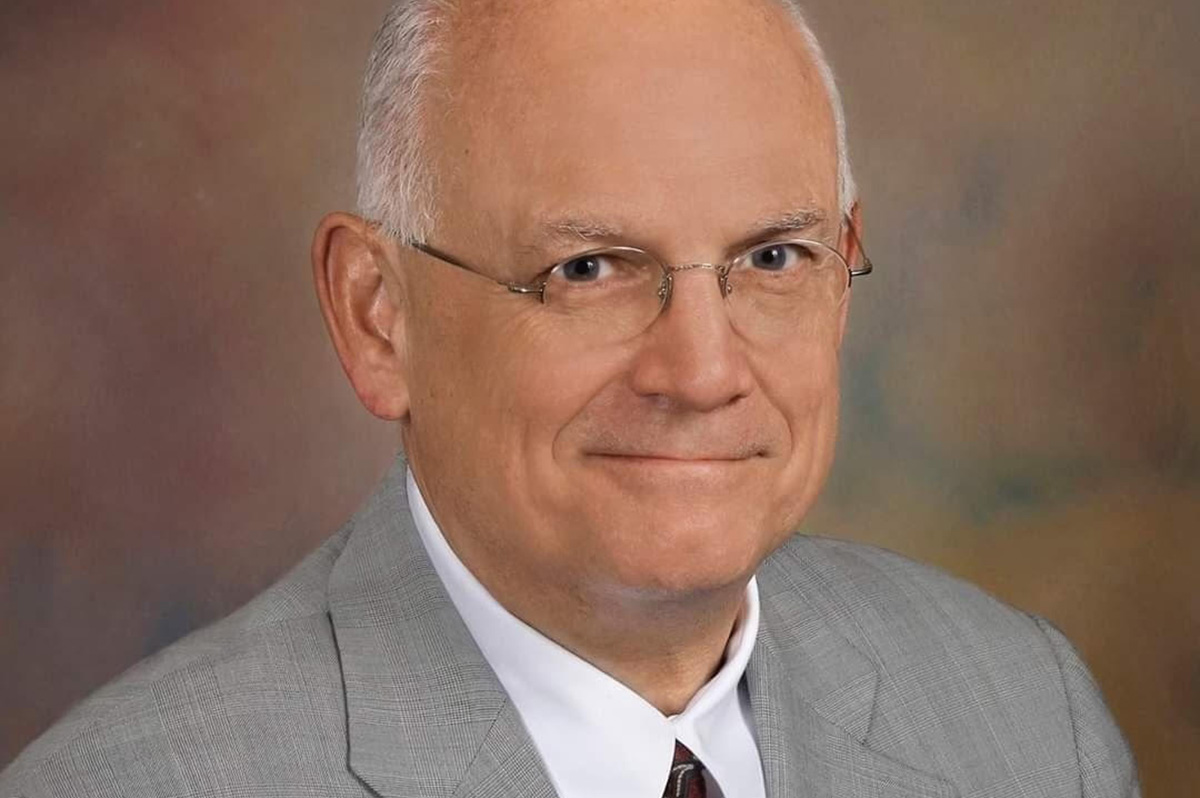
Dale Edwin Sanders, an attorney who practiced law in D.C. and Northern Virginia for more than 40 years and is credited with playing a key role in providing legal services for people living with HIV/AIDS beginning in the early 1980s, died April 10 at the age of 75.
His brother, Wade Sanders, said the cause of death was a heart attack that occurred at Johns Hopkins Hospital in Baltimore shortly after he had back surgery.
Wade Sanders described his brother as a “trial lawyer, passionate criminal defense, and civil litigator for human rights” for close to 50 years, with some of his work focused on “civil law, notably gay-related insurance discrimination during the AIDS epidemic.”
He called his brother “a zealous advocate for the oppressed, his clients, and his personal convictions.”
Born in Arlington, Va., and raised in McLean, Va., Dale Sanders graduated from Langley High School in McLean and received his bachelor’s degree from the University of Virginia, his brother said. He received his law degree from D.C.’s American University Washington College of Law and began his law practice in 1976 in Old Town, Alexandria, Wade Sanders said.
Amy Nelson, director of Legal Services for D.C. ‘s Whitman-Walker Health, said Sanders became one of Whitman-Walker’s original volunteer pro-bono attorneys in the 1980s.
“Dale was a beloved part of the legal services program and our medical-legal partnership for nearly 40 years,” Nelson said. “Dale was one of the clinic’s first volunteer attorneys at Whitman-Walker’s weekly, legal walk-in clinic offering free counseling to clients about their legal rights in the face of HIV/AIDS and LGBT discrimination from employers, landlords, medical providers, and insurance companies,” according to Nelson.
Nelson added, “Dale represented dozens of people impacted by the ignorance and prejudice attendant to an HIV/AIDS diagnosis, and his litigation wins were instrumental in advancing the legal rights of persons living with HIV/AIDS.”
Sanders’s most recent case on behalf of Whitman-Walker took place in 2023 in support of a transgender woman in Virginia who faced discrimination from her employer and health insurer, Nelson said.
In 1989, Whitman-Walker presented Sanders with its Gene Frey Award for Volunteer Service, and in 1994 presented him with its Founders Award for Pro Bono Legal Services, Nelson told the Blade. She said in 2024, Whitman-Walker re-named its annual Going the Extra Mile Pro Bono Award as the Dale Sanders Award for Pro Bono Excellence.
“Dale’s legacy helped to shape HIV/AIDS law, and his fierce commitment to justice will live on at Whitman-Walker Health,” Nelson said in a statement. “We will miss him dearly.”
Daniel Bruner, who served as Whitman-Walker’s legal services director prior to Amy Nelson taking that position, said Sanders played a role in shaping his own legal skills and knowledge.
“Dale was one of my earliest legal models among local, and national, advocates for people living with HIV and LGBT people,” Bruner told the Blade. “He was a fierce, persistent advocate for his clients and for the community,” Bruner said, adding, “He won key victories in several cases where employees’ or health care patients’ privacy had been egregiously violated. I certainly will never forget him.”
Wade Sanders said his brother was also an avid bridge player, saying he played competitively. “He earned the rank of Ruby Life Master, a pretty big deal in the bridge world,” Wade Sanders said.
Dale Sanders is survived by his husband, Christian Samonte; his sister, Joyce Sanders of York, S.C.; his brother Wade Sanders of West Jefferson, N.C.; and his beloved dogs Langley and Abigail, his brother said in a statement.
A memorial service for Dale Sanders organized by the Sanders family and the LGBTQ Catholic group Dignity Washington will be held Saturday, May 10, at 1 p.m. at St. Margaret’s Episcopal Church at 1830 Connecticut Ave., N.W. in D.C., a Dignity Washington spokesperson said.
Obituary
Nanette Kazaoka, an unlikely AIDS activist, dies at 83
Member of ACT-UP, longtime social justice advocate
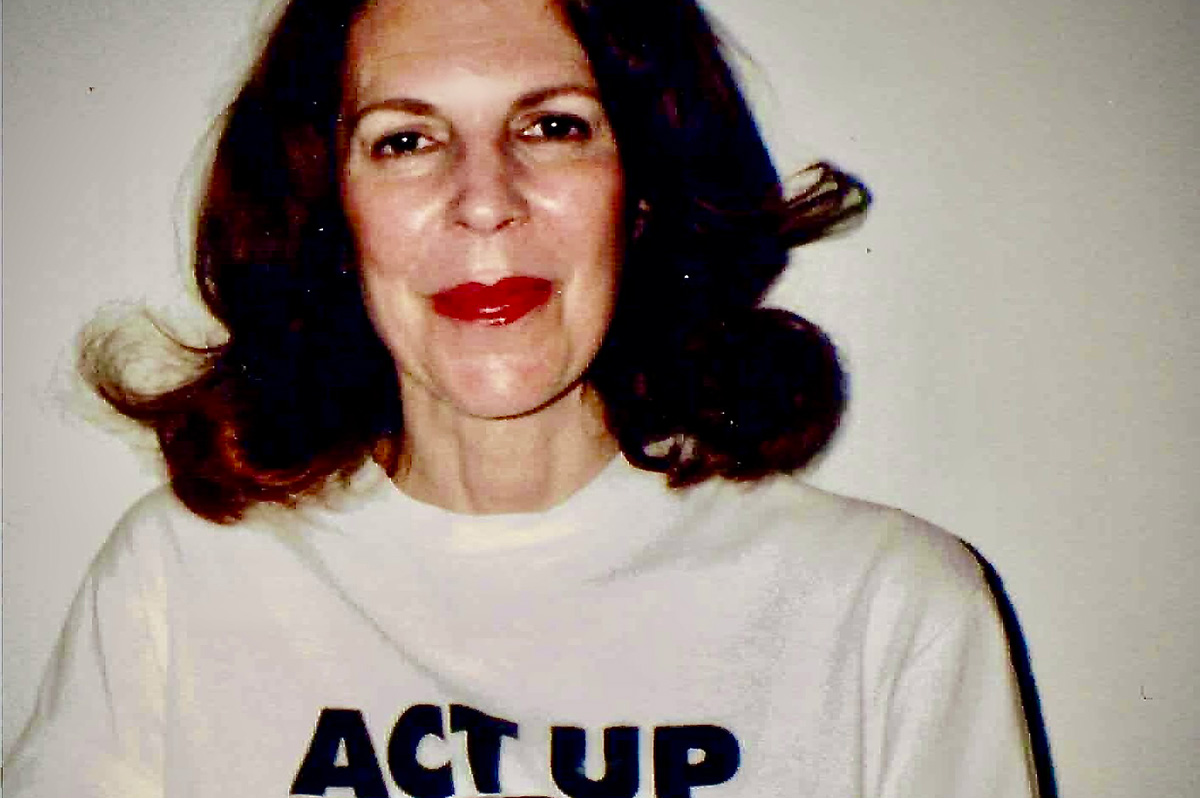
Nanette Kazaoka, a well-known figure in the fight for HIV/AIDS awareness and the rights of marginalized communities, passed away on Oct. 2 at her home in New York City. She was 83. The cause of death was complications from vascular dementia and Alzheimer’s disease, according to a statement from her daughter Kelly Kochendorfer.
Kazaoka was an advocate for justice, particularly in the early days of the AIDS crisis, when she became a member of the AIDS Coalition to Unleash Power, or ACT-Up. She is perhaps best remembered for her participation in a 2004 protest in front of Madison Square Garden during the Republican National Convention, when she and 11 fellow activists staged a dramatic naked demonstration, demanding debt cancellation for impoverished countries, according to a statement from the family.
“Bush, Stop AIDS. Drop the Debt Now!” they chanted, with slogans stenciled in black paint on their bodies. The bold protest drew national attention and underscored the urgency of global debt relief as a key element in the fight against AIDS.
She was born Nanette Natalina Bottinelli on June 12, 1941, in New York City. Her father, Angelo, worked as a waiter at the St. Regis Hotel, while her mother, Betty McComb, was a part-time burlesque dancer.
She married her first husband, Fred Kochendorfer, in 1963, and they had two children together, Kim Skrobe and Kelly, both of whom survive her.
Kazaoka’s journey to Fire Island marked a transformative period in her life. Kochendorfer wanted to live there, and so they began renting in 1967. Kazaoka then made a bold decision that would shape her future: She left her husband for another man and began living on Fire Island in 1968-1969, with the children attending school in Ocean Beach, according to the family’s statement.
This period coincided with the early days of the gay rights movement, as Fire Island was emerging as a hub for LGBTQ culture. Her experiences during these years contributed to the strong sense of activism and solidarity that would later define her role in ACT-UP and the broader fight for LGBTQ rights.
Kazaoka’s second husband, Katsushiga “Kats” Kazaoka, a Japanese-American psychologist who had been interred during World War II, died of cancer in 1984, pushing her to enter the workforce as a receptionist while studying occupational therapy at Downstate Medical Center. By 1990, she had earned her degree and sought work with AIDS patients.
In 1988, a close friend introduced her to ACT-UP, sparking the start of her full-time dedication to AIDS activism, the family said. Kazaoka became known for her passionate, unrelenting activism, whether protesting at City Hall or challenging anti-LGBTQ policies at St. Luke’s Hospital.
Kazaoka’s activism spanned 35 years, making her a beloved and respected figure within ACT-UP and beyond, the family noted. She was featured in Sarah Schulman’s “Let the Record Show: A Political History of ACT-Up New York, 1987-1993” as well as “Act-Up Oral History, No. 162,” a digital history. She was the cover photo of “Fag Hags, Divas and Moms: The Legacy of Straight Women in the AIDS Community,” and was included in The New York Times T Living Magazine story, “LEGENDS PIONEERS AND SURVIVORS.
Her dedication to science continued even after her passing: She donated her brain to the Mount Sinai NIH Brain and Tissue Repository for research to advance the understanding of the human brain health and disease to help end dementia, the family said.
Along with her daughters, Kazaoka is survived by her son-in-law John Skrobe, granddaughter Stella Skrobe and daughter-in-law Christine Arax, all of New York. She and her third husband, Paul Haskell, divorced in 2000.
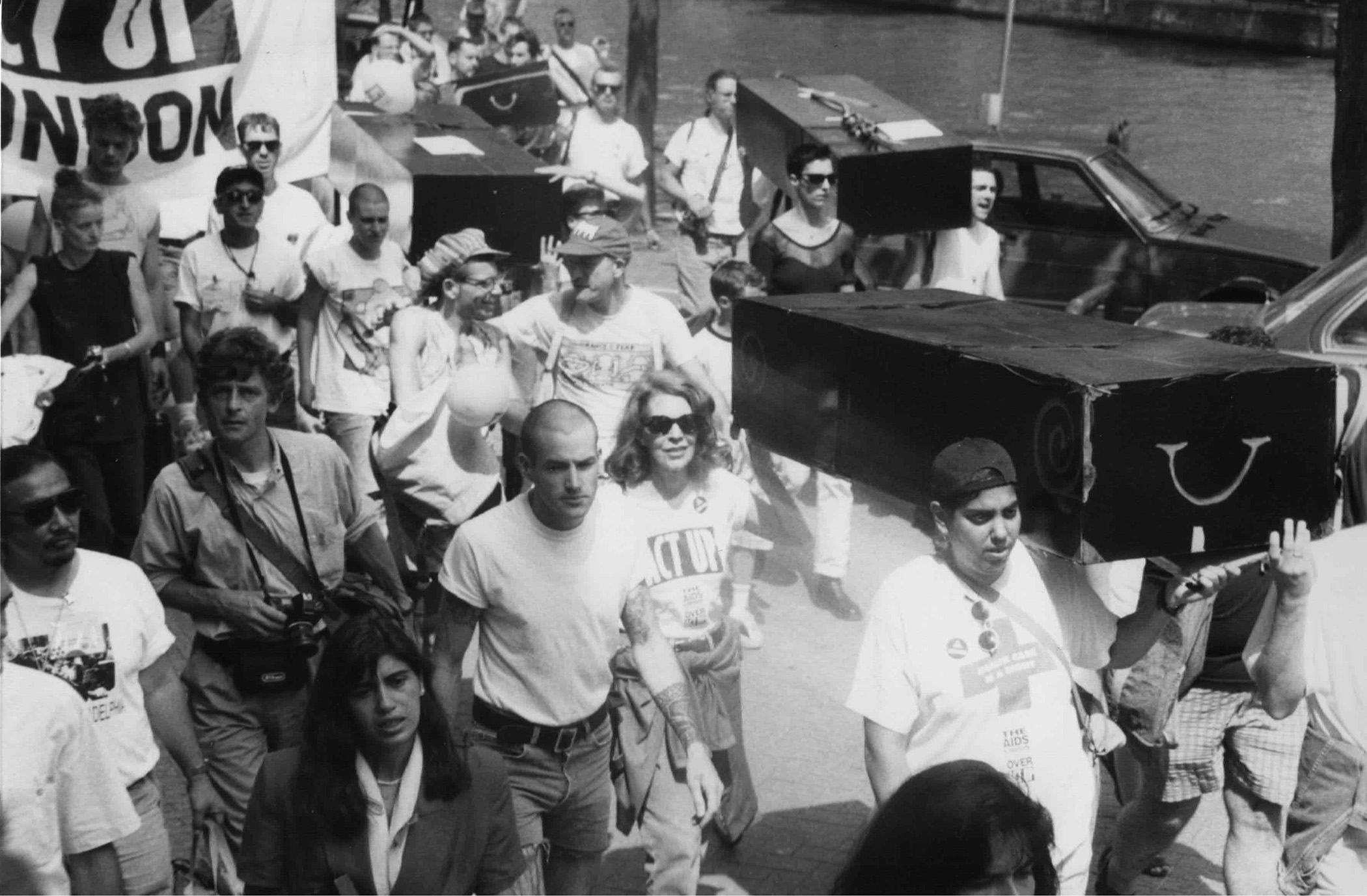
Local
D.C. LGBTQ rights advocate Jeri Hughes dies at 73
‘Force of nature’ credited with pro-trans policy at city jail
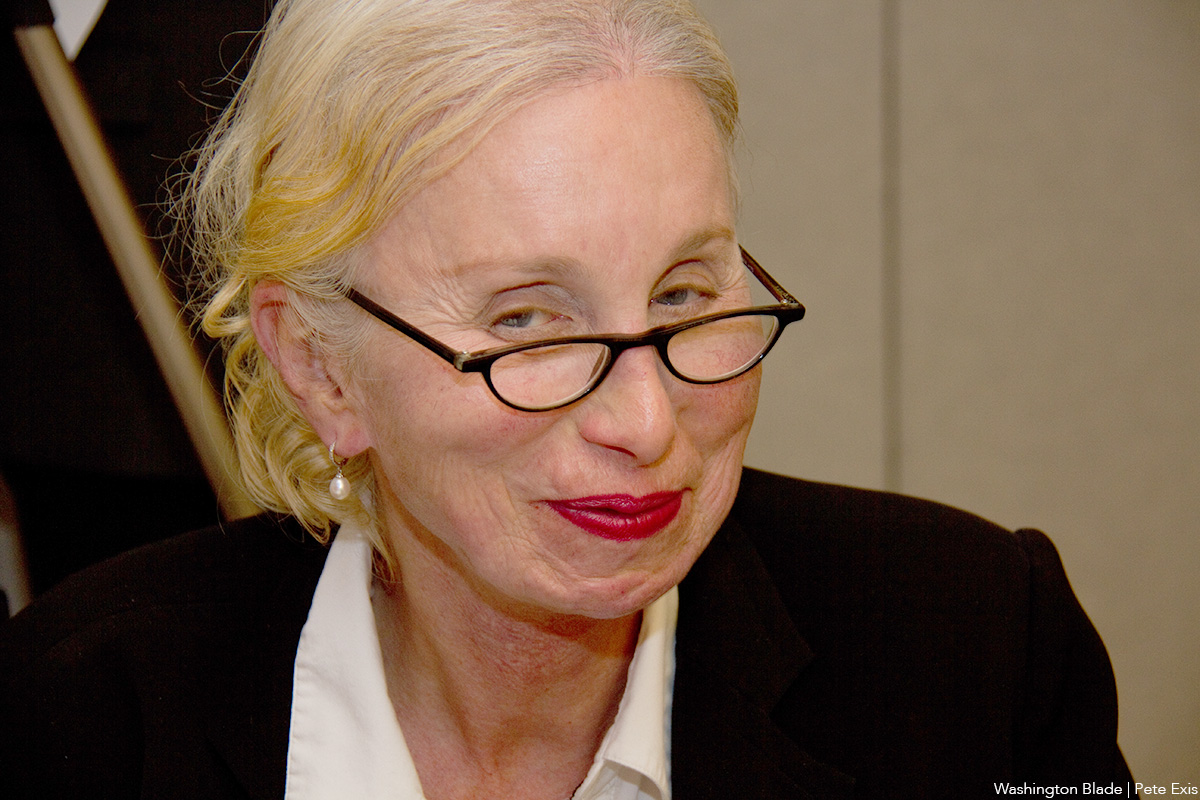
Jeri Hughes, a longtime D.C. transgender rights advocate who has worked closely with activists in support of the local LGBTQ community, died March 18 at her home after a seven-year battle with lung cancer. She was 73.
Hughes, who has worked for the past 11 years at the D.C. Department of Employment Services, most recently as a Workforce Development Specialist, became involved in local LGBTQ rights and transgender rights endeavors since she moved to D.C. around 2005.
Among other endeavors, Hughes, along with D.C. transgender rights advocate Earline Budd, has served for more than a decade on the D.C. Department of Corrections’ Transgender Housing and Transgender Advisory committees.
Budd this week said Hughes played an important role in ensuring that Department of Corrections officials continue to follow a 2009 policy of allowing transgender inmates to choose whether to be placed in the men’s or the women’s housing units at the D.C. jail.
“In her toughness and determination, Jeri was a force of nature,” said Rick Rosendall, former president of the D.C. Gay and Lesbian Activists Alliance. “She pressed the D.C. Department of Corrections for more humane and respectful treatment of transgender inmates,” Rosendall said.
“She pressed the D.C. government to set an example by hiring more trans people,” according to Rosendall, who added that Hughes interacted with D.C. police officials, including former D.C. Police Chief Peter Newsham, to push for respectful treatment of trans people by the police.
Hughes’s LinkedIn page shows that prior to working at the D.C. Department of Employment Services she served as housing coordinator for a local social services organization called T.H.E. Inc., where, among other things, she “monitored and mentored a diverse population of LGBT youth.”
Her LinkedIn page shows she also worked from June 2009 to May 2010 as an administrative assistant at the D.C. Anacostia Watershed Society.
Hughes’s brother, Lou Hughes, who said the Hughes family is originally from Ohio, told the Washington Blade Jeri Hughes served in the U.S. Navy after high school as a torpedo operator in a submarine in the South Pacific. He said a short time later Jeri Hughes moved to New York City, where she operated a company that provided commercial laundry service to restaurants and hospitals.
Lou Hughes said his sister Jeri moved to D.C. around 2005 and initially lived with him and his wife in a basement apartment in their house before moving to her own apartment in Northwest D.C. where she remained until her passing.
He said it was around 2005 that his sister informed her family that she planned to transition as a transgender woman at the age of 54. “And our family fully supported her decision, helped her finance the various surgeries,” Lou Hughes said. “And once she went through the transition it was like she was fully reborn.”
“And that’s why all these negative comments about transgender people right now – it’s very hurtful to our family because she was really the classic transgender person who was really simply born in the wrong body and gave our entire family a real sensitivity and understanding of what that meant,” Lou Hughes said.
Denise Leclair, one of Jeri Hughes’s closest friends and former roommate, said among Jeri Hughes’s many interests was boating. Leclair said Hughes persuaded her to join Hughes in purchasing a 45-foot sailboat in 2019, shortly after Hughes was diagnosed with lung cancer.
“We spent the next two months getting it fixed up and we started sailing,” Leclair recalls. “And we did quite a bit of sailing, so she really put her heart and soul into restoring this boat.”
Leclair said the boat was docked in a harbor in Deale, Md., just south of Annapolis. She said up until a few months ago, after her cancer prevented her from working full-time, Hughes spent most of her time living on the boat until her illness forced her to return to her D.C. apartment.
“My Dearest Sister Jeri, born April 30, 1951, left our restless Earth in the early morning of March 18, 2025, succumbing to the lung cancer which she battled against so bravely for seven years,” Lou Hughes says in a statement. “As we all know, Jeri was a person of high intellect, incredible energy and fearless in the face of adversity,” her brother wrote.
“Whether through acts of quiet charity, tireless advocacy, or simply offering a listening ear, Jeri made it a mission to uplift, support, and care for every person she encountered,” his statement says. “Her life was a testament to empathy in action, leaving a lasting legacy of love, hope, and selflessness that will continue to inspire all who knew her.”
In addition to her many friends and colleagues in D.C., Jeri Hughes is survived by her brother, Lou Hughes; sister-In-law Candice Hughes; daughter, Casey Martin; son-in-law Wally Martin; grandson Liam Martin; granddaughter, Mirella Martin; niece, Brittany Hughes; and nephew Klaus Meierdiercks.
A memorial service and celebration of life for Jeri Hughes is scheduled to be held May 10 at D.C.’s Metropolitan Community Church at 1 p.m., according to Earline Budd.
-

 State Department4 days ago
State Department4 days agoHIV/AIDS activists protest at State Department, demand full PEPFAR funding restoration
-

 Brazil5 days ago
Brazil5 days agoUS lists transgender Brazilian congresswoman’s gender as ‘male’ on visa
-

 District of Columbia4 days ago
District of Columbia4 days agoCapital Pride wins $900,000 D.C. grant to support WorldPride
-

 Obituary3 days ago
Obituary3 days agoLocal attorney, LGBTQ rights advocate Dale Sanders dies at 75



